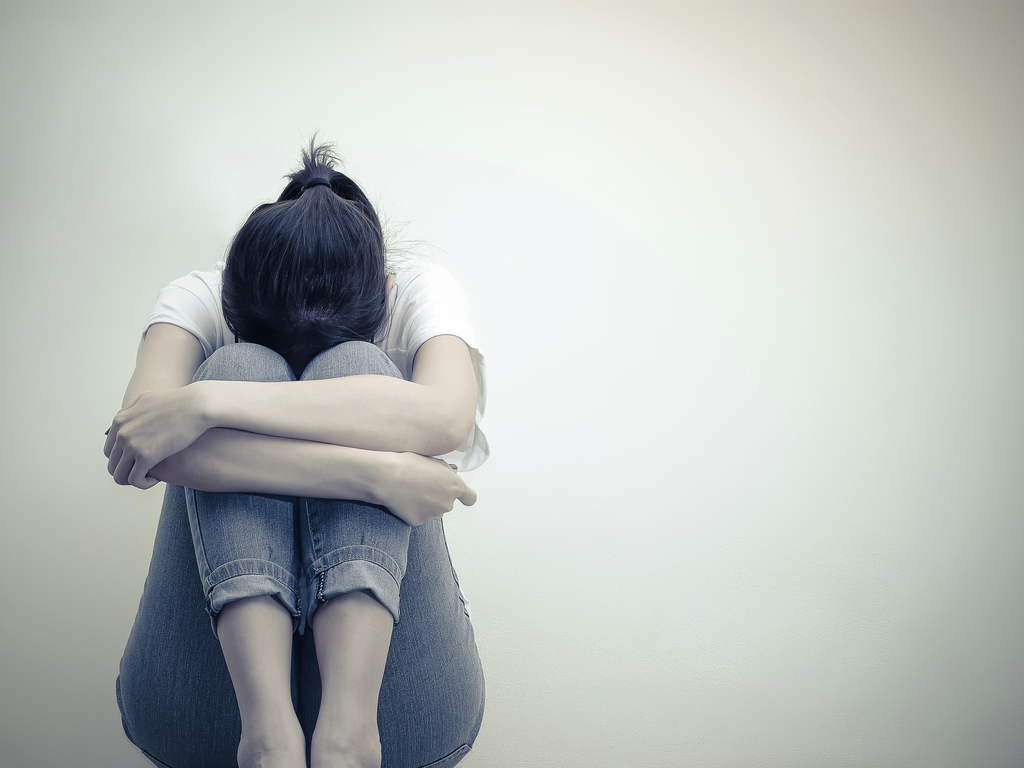
We define hopelessness as a negative view of the future, decreased motivation, loss of interest in things that previously brought joy, and a negative view of self. Depending on the individual’s circumstances, these symptoms can worsen if not treated by a professional. Read on to learn more about the definition of hopelessness.
Let’s explore the definition of hopelessness, its causes, examples of people experiencing hopelessness, plus psychology models of depression.
Definition of Hopelessness – How Do You Describe Hopelessness?
Hopelessness is a potent emotion that contributes to a low mood and can consequently affect how a person perceives themselves. It is characterized by a lack of optimism, hope, and positivity. Often, when a person experiences hopelessness, they lack aspirations or ambition for the future. Most likely they may feel that their circumstances are unlikely to improve.
Experiencing feelings of hopelessness can lead an individual to lose interest in the things that would usually be a source of joy or meaning for them. When experiencing hopelessness, individuals lack inspiration. Often, they face other challenging emotions such as powerlessness, isolation, oppression, or helplessness.
The Etymology of Hopelessness
The root words of hopelessness are “hope” and “less.”
The word hope derives its meaning from the Old English word “hopa,” which means to have “confidence in the future.” However, this definition is mainly using God as a basis for that hope. Around the 13th century, hope meant confidence, trust, or the expectation of a wish or desire.
‘Less’ is an element of word-formation deriving its meaning from the Old English term “leas,” meaning devoid of, free from, or false.
Leu is the proto-indo-European root from which we derive the term “less.” The original meaning of leu was to divide, cut apart, and loosen.
Synonyms And Antonyms of Hopelessness
The synonyms of hopelessness and words that share a close meaning include despondency, anguish, discouragement, dejection, pessimism, cynicism, woe, distress, resignation, irredeemable, irreparable, disheartenment, despair, joylessness, self-despair, gloom, forlornness, desperateness, and melancholy.
The antonyms of hopelessness and words that have an opposite meaning include encouragement, contentment, comfort, joy, peace, pleasure, cheerfulness, optimism, joviality, gladness, jubilation, rapture, hopefulness, promising, redeemable, heartening, upbeat, idealistic, reassuring, favorable, believable, conceivable, exuberant, merry, vivacious, gleeful, happy, sunny, chipper, and buoyant.
How Do I Use Hopelessness in a Sentence?
Below are some examples of using the word hopelessness in a sentence.
- Depression is a severe disorder marked by overwhelming sadness, hopelessness, and anguish.
- Rebecca cried with hopelessness, and despite Lee’s best efforts, he couldn’t find the strength to console her.
- The apparent hopelessness of a peaceful resolution provided compelling reasons for external action.
- I’ve often sobbed out loud in despair at the hopelessness of life, especially my own life.
What Does It Mean to Feel Hopelessness?
When experiencing hopelessness, an individual holds a negative outlook of their future. They believe that their current mental state is irreversible and will sustain. For example, those experiencing hopelessness are likely to make statements similar to the following:
“Life will never get any better.”
“There is no future for me,”
“No one can help me improve my situation.”
“I want to give up.”
“I can never experience happiness or joy again.”
What Is the Psychological Definition of Hopelessness?
The definition of hopelessness, in psychological terms, is the feeling that negative emotions or circumstances will sustain. Also, a feeling that there is no solution to a problem. Finally, hopelessness is characterized by a pessimistic outlook on life combined with a loss of confidence to pursue one’s goals.
Hopelessness can seriously hamper a person psychologically and physically. Unfortunately, this feeling makes it difficult for those already experiencing medical issues to recover successfully.
Sadness, anxiety, and loneliness are emotions that everyone experiences. However, if we experience them for a prolonged period, they can pose a severe psychological threat to us. Rose and Abramson conducted a study in 1992. It demonstrated a clear link between three negative inferential styles – or pessimistic thinking patterns – and depression.
The first tendency is the cause. Suppose an individual views their problems as being caused by a power out of their control. In that case, they will be more likely to experience feelings of hopelessness. They believe that they cannot change their circumstances.
The second is the consequence. Suppose an individual believes that they cannot affect the outcome of a situation and constantly imagines worst-case scenarios. This means they are more likely to experience hopelessness because they imagine that bad things always happen to them, no matter what they do.
The third tendency is self-image. This is for those who constantly compare themselves to others. They view themselves as falling short and consider that they are the problem. They feel life will never get any better because they are the cause of all of their issues.
Many factors contribute to depression, and there is no simple model to define it. However, this research highlights three key thinking styles that significantly impact an individual’s well-being and the likelihood of developing depression.
What Is the Hopelessness Scale?
Dr. Aaron Beck designed the Beck Hopelessness Scale in 1974. Using statements such as “I have hope, when I think about my future” and “Nothing goes right for me,” which participants rank as true or false, Beck hoped that he could quantify the future thoughts and beliefs of individuals experiencing hopelessness.
The Hopelessness scale measures the three critical elements of hopelessness. First, how an individual feels about the future. Second, motivation levels, and third is expectations. This scale can be used to assess the risk of suicide among those afflicted with depression.

What Is an Example of Hopelessness?
We’ve explored the definition of hopelessness, but what does it look like when we experience this state of mind?
Scioli and Biller proposed nine individual forms of hopelessness as detailed below:
- Alienation – You feel different from other people and don’t fit in.
- Forsakenness – You have experienced rejection or abandonment and feel uncared for.
- Lack of Inspiration – You lack mental or creative stimulation.
- Powerlessness – You feel that your actions don’t impact your own life or the lives of others.
- Oppression – You feel that you are not treated as an equal to others.
- Limitedness – You feel that you lack the skills or abilities needed to achieve your goals.
- Doom – You feel condemned to a negative outcome in life.
- Captivity – You often feel like a captive if you have been imprisoned at some point in your life or subjected to an abusive relationship where someone prevented you from executing your own free will.
- Helplessness – You feel unable to take action or change your circumstances.
What Causes Hopelessness?
Hopelessness can be a symptom of many other psychological issues such as anxiety, depression, mood disorders, or eating disorders. Still, it can also present during challenging times of our life.
Suppose an individual is discouraged by external events in their life, such as losing a job or experiencing a breakup. In that case, the adverse and distressing side effects may present themselves as hopelessness.
Hopelessness is not always synonymous with mental health, but regardless of the cause, it can have a devastating impact on an individual’s life. Not only does it sap the joy from every day, but the sense of despair makes people less likely to seek help.
Conclusion on Definition of Hopelessness
Feelings of anxiety or despair are normal human emotions that we all experience from time to time when life throws an obstacle our way. This is not a cause for concern and will likely pass in time.
However, suppose you experience prolonged feelings of pessimism and gloom. In that case, it’s essential to consult a medical professional to ensure that the effects of hopelessness do not impact too significantly on your livelihood.
References
GoodTherapy | Hopelessness
hopeless | Etymology, origin, and meaning of hopeless by etymonline
HOPELESSNESS Synonyms: 28 Synonyms & Antonyms for HOPELESSNESS | Thesaurus.com
9 Types of Hopelessness and How to Regain Hope (psychcentral.com)
